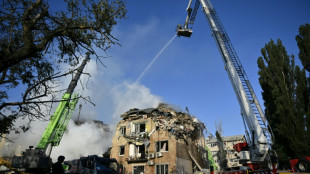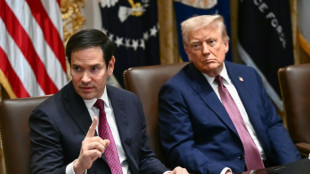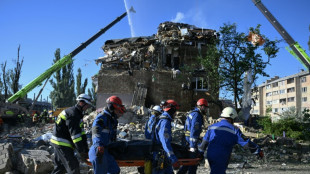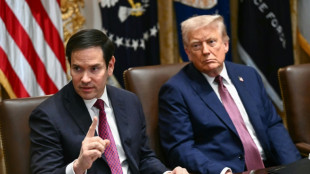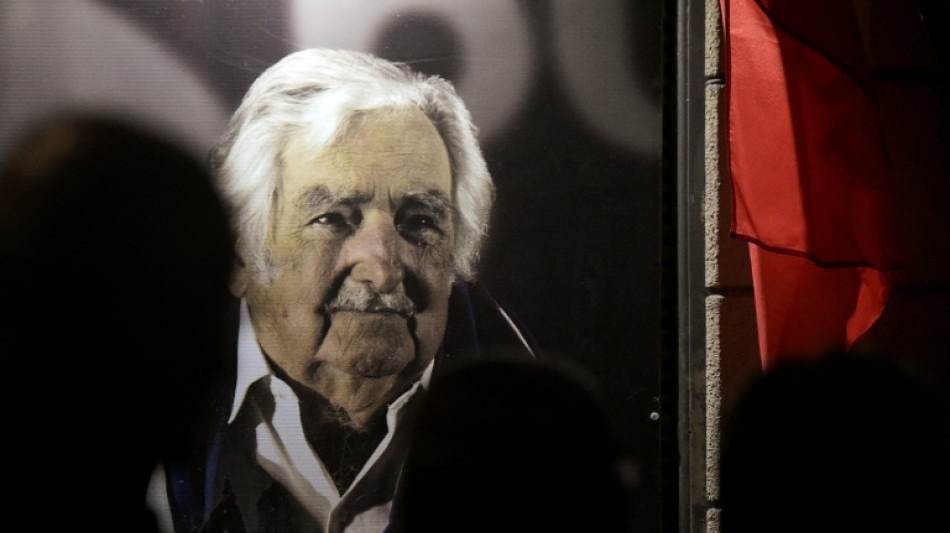

Latin America mourns world's 'poorest president' Mujica, dead at 89
Tributes poured in from across Latin America on Tuesday following the death of Uruguay's former president Jose "Pepe" Mujica, an ex-guerrilla fighter revered by the left for his humility and progressive politics.
The iconic 89-year-old -- who spent a dozen years behind bars for revolutionary activity -- lost his battle against cancer after announcing in January that the disease had spread and he would stop treatment.
"With deep sorrow, we announce the passing of our comrade Pepe Mujica. President, activist, guide and leader. We will miss you greatly, old friend," Uruguay's current president, Yamandu Orsi, posted on X.
"Pepe, eternal!" a cyclist shouted out minutes later, while passing government buildings.
Mujica earned the moniker "world's poorest president" during his 2010-2015 presidency for giving away much of his salary to charity and living a simple life on his farm, with his fellow ex-guerrilla wife and three-legged dog.
The government announced three days of national mourning and said his body would be taken to the legislative palace on Wednesday to lie in state.
Activists from Mujica's Movement of Popular Participation (MPP) gathered outside the party's headquarters to make giant banners marked "Hasta siempre, viejo querido" (Until forever, old friend).
Leftist leaders from across Latin America and Europe paid tribute to the man described by Mexican President Claudia Sheinbaum as an "example for Latin America and the entire world."
At the Madison, an unassuming corner cafe in central Montevideo, waiter Walter Larus recalled Mujica popping in for a steak shortly after winning office.
"He felt and lived like ordinary people, not like today's politicians who seem rich," the 53-year-old waiter said.
In a 2012 AFP interview, Mujica denied being poor, saying his was, rather, a life of "austerity."
"I need little to live," he said.
He transformed Uruguay, a prosperous country of 3.4 million people best known for football and ranching, into one of Latin America's most progressive societies.
In later life, he was disappointed at the authoritarian drift of some left-wing governments, accusing repressive leaders in Venezuela and Nicaragua of "messing things up."
He was diagnosed with cancer of the esophagus in May last year, and it spread to his liver.
His wife Lucia Topolansky said this week he was receiving palliative care.
- 'Humility and greatness' -
Over the course of five years in power, Mujica legalized abortion and gay marriage and made Uruguay the first country to legalize the use of recreational cannabis.
He continued to campaign for the left after his cancer diagnosis, working fervently on the successful election campaign of history teacher Orsi, his political heir.
Former Bolivian president Evo Morales hailed his "experience and wisdom," while Brazil's government bid farewell to "one of the most important humanists of our time."
Spanish Prime Minister Pedro Sanchez said Mujica had lived for "a better world," while Guatemala's Bernardo Arevalo held him up as "an example of humility and greatness."
- From prison to politics -
The blunt-spoken, snowy-haired farmer was a fierce critic of consumerism.
He attended official events in sandals and continued living on his small holding on the outskirts of Montevideo, where his prized possession was a 1987 Volkswagen Beetle.
In the 1960s, he co-founded the Marxist-Leninist urban guerrilla movement Tupamaros, which started out robbing from the rich to give to the poor but later escalated its campaign to kidnappings, bombings and assassinations.
During those years, Mujica lived a life of derring-do. He sustained multiple gunshot wounds and took part in a mass prison breakout.
But when the Tupamaros collapsed in 1972, he was recaptured and spent all of Uruguay's 1973-1985 dictatorship in prison, where he was tortured and spent years in solitary confinement.
After his release, he threw himself into politics and in 1989 founded the MPP, the largest member of the leftist Broad Front coalition.
Elected to congress in 1995, he became a senator in 2000 and then agriculture minister in Uruguay's first-ever left-wing government.
As president, he was praised for his fight against poverty but criticized for failing to rein in public spending.
He is survived by his wife Topolansky. They had no children.
Mujica asked to be buried on his farm, next to his dog.
G.Abbenevoli--RTC
